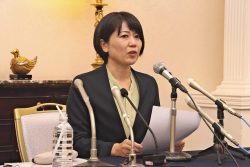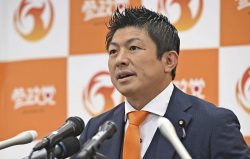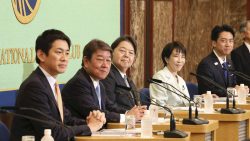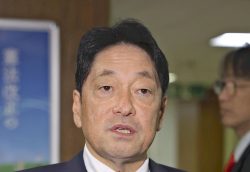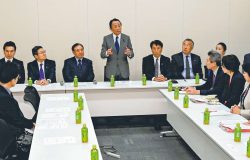Positions in LDP, JIP, DPFP Closely Align on Domestic, Foreign Policy; Divisions Within Ruling, Opposition Parties Found
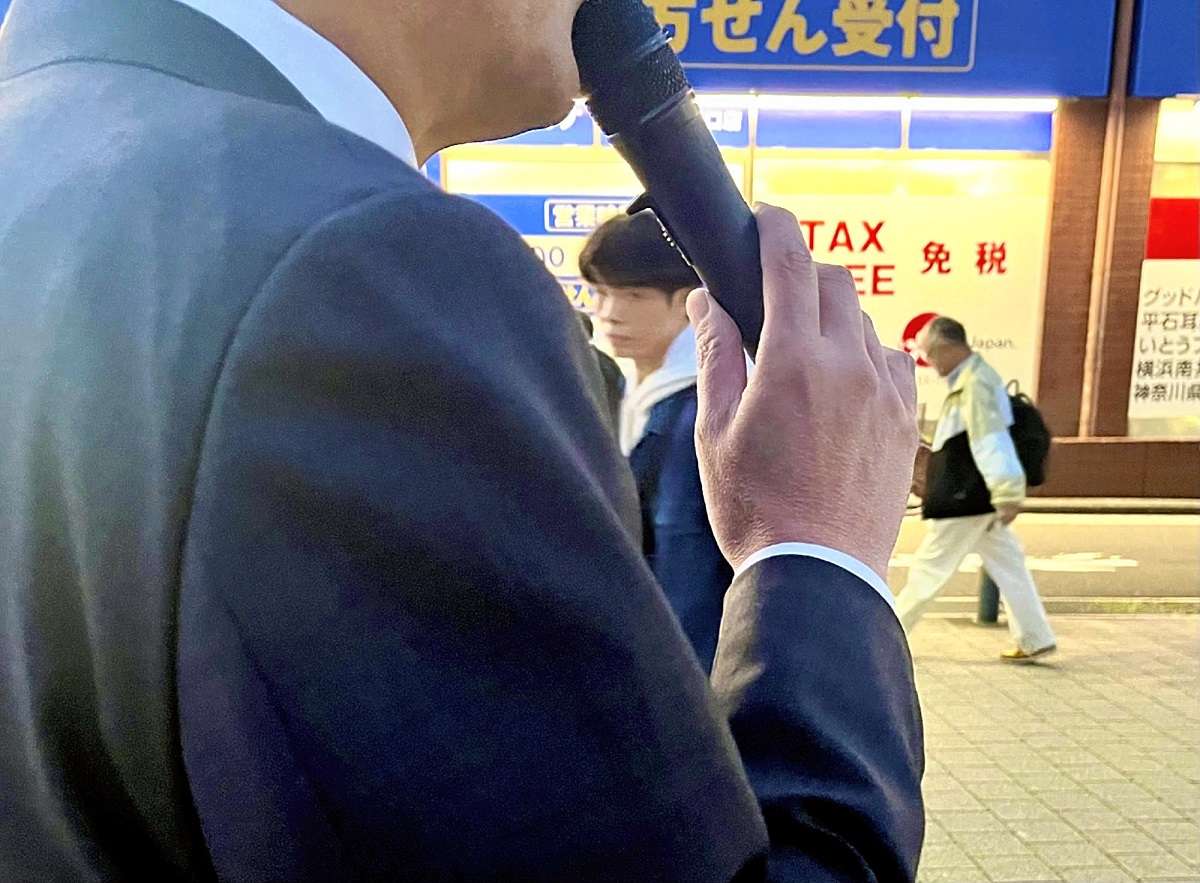
A candidate for the House of Representatives election speaks to the public.
16:22 JST, October 23, 2024
The positions held by candidates of the Liberal Democratic Party, the Japan Innovation Party and the Democratic Party for the People for the upcoming House of Representatives election closely match regarding both domestic and foreign policies, according to the results of a Yomiuri Shimbun survey.
Particularly noteworthy was that candidates from these three parties were similar in their emphasis on economic growth and their positive stance on securing counterattack capabilities such as the ability to strike enemy missile launchers.
Meanwhile, candidates of the Constitutional Democratic Party of Japan tended to express a reluctance to strengthen Japan’s defense capabilities.
Differences in emphasis
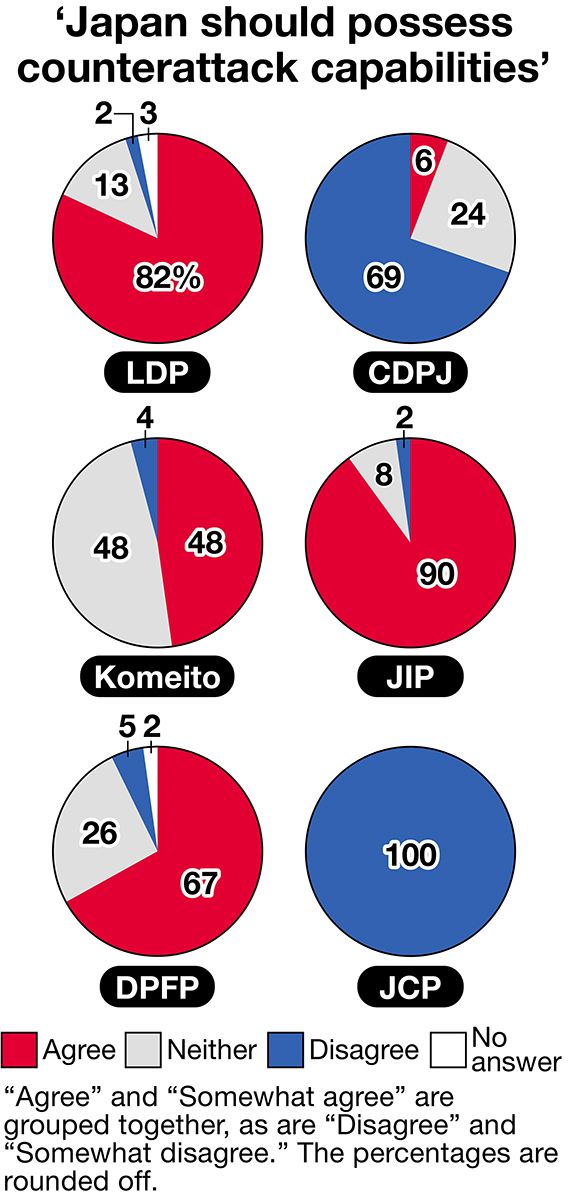
Prime Minister Shigeru Ishiba emphasized that the Liberal Democratic Party intends to focus on economic policy at a speech in Toyota, Aichi Prefecture, on Tuesday.
“We’ll have [companies] raise their employees’ wages and develop new products without burdening their subcontractors. We want to create a new economy,” he said.
There were differences between parties when candidates were asked which they prioritized more: “growth,” in which the aim is to increase the size of the economy, or “distribution,” in which the aim is to reduce economic disparity.
All parties have made campaign pledges that emphasize both growth and distribution, but there are differences in the emphasis placed on each.
Among the candidates of the six major parties, the LDP had the highest proportion of respondents who said they would prioritize or somewhat prioritize “growth,” at 59%, followed by the DPFP at 57% and the JIP at 39%.
In contrast, the parties with the highest proportion of candidates prioritizing “distribution” were the Japanese Communist Party at 85% and the CDPJ at 59%.
Komeito had the highest proportion of candidates who selected “it is hard to choose,” at 75%.
It seems that stances on the issue are not necessarily divided into ruling and opposition parties.
Use of N-plants fuels division
When asked about nuclear power plants, about 80% of respondents from the LDP, JIP and DPFP were positive about their future use.
The three parties call for promoting the restart of nuclear power plants that have been suspended, as well as the development of next-generation reactors.
Among the respondents, 79% of CDPJ candidates and all JCP candidates expressed support or a preference for the “early abolition” of nuclear plants. Komeito had 54% of its candidates expressing support or a preference for early abolition, showing differences even among the ruling parties.
LDP cautious regarding China
Policies were most divided in the fields of diplomacy and national security. Regarding counterattack capabilities such as those to hit enemy missile bases, 82% of LDP, 90% of JIP and 67% of DPFP respondents were either in favor or somewhat in favor of acquiring them, while 69% of CDPJ members were either against or somewhat against the idea. About half of Komeito respondents expressed a neutral stance.
In the survey, 94% of LDP, 96% of JIP, 84% of DPFP and 60% of Komeito candidates were either in favor or somewhat in favor of strengthening Japan’s defense capabilities, while only 31% of CDPJ members responded the same way.
On the diplomatic front, the parties were divided in their stance over China.
The LDP had 40% in favor of strengthening relations with China and 46% who were neither for nor against it. The percentages highlighted the party’s cautious stance against the country in response to its active military operations around Japan, such as the airspace violation in August, and its economic coercion through the import ban on Japanese marine products following the discharge of treated water into the ocean from the Fukushima No. 1 nuclear power plant.
On the other hand, respondents from other parties were largely in favor of strengthening relations, with 92% of the Komeito, 85% of the JCP, 62% of the JIP and 58% of the CDPJ members responding as such, apparently placing importance on economic ties.
"Politics" POPULAR ARTICLE
-

Japan to Support Central Asian Logistics Route That Bypasses Russia, Plan to Be Part of Upcoming Summit in Tokyo
-

Japan to Tighten Screening of Foreigners’ Residential Status by Providing Information of Nonpayment of Taxes
-

Chinese, Russian Bombers Flew Unusual Path by Heading Toward Tokyo; Move Likely Meant to Intimidate Japan
-
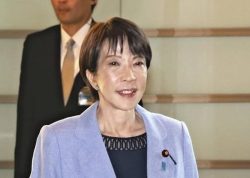
Japan Plans National Database to Track Foreign Ownership of Real Estate, Land as It Weighs New Rules
-

Up to 199,000 Deaths Estimated From Mega-Tsunami; Most Recent Occurrence Took Place in 17th Century
JN ACCESS RANKING
-

Keidanren Chairman Yoshinobu Tsutsui Visits Kashiwazaki-Kariwa Nuclear Power Plant; Inspects New Emergency Safety System
-

Tokyo Economic Security Forum to Hold Inaugural Meeting Amid Tense Global Environment
-

Imports of Rare Earths from China Facing Delays, May Be Caused by Deterioration of Japan-China Relations
-

University of Tokyo Professor Discusses Japanese Economic Security in Interview Ahead of Forum
-

Japan Pulls out of Vietnam Nuclear Project, Complicating Hanoi’s Power Plans


